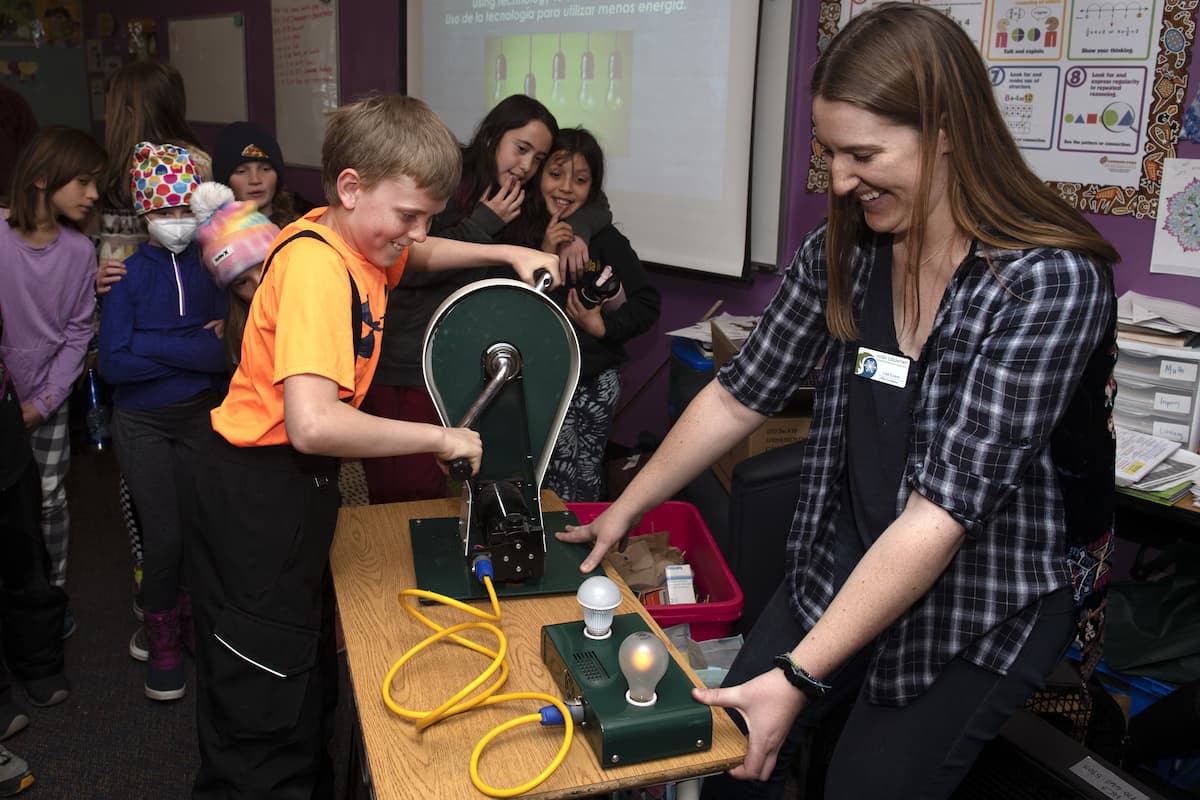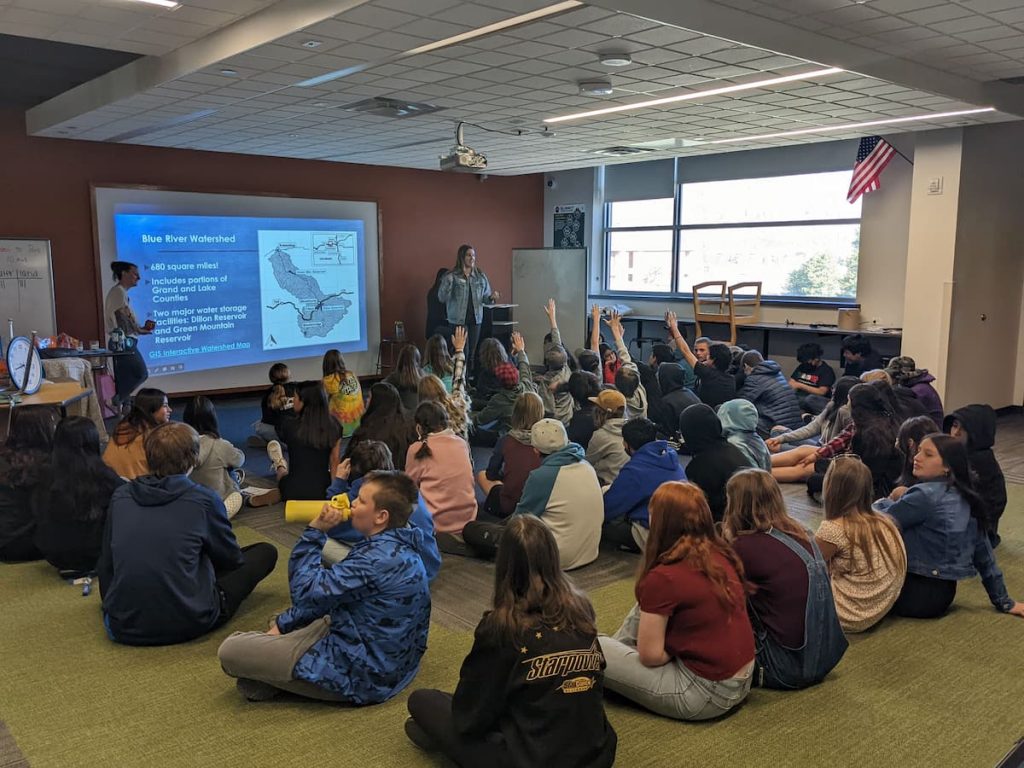
Dear Eartha, As a parent, I am worried about the impact climate change will have on my kids’ futures. How can I encourage my kids to be environmental stewards without totally overwhelming them?
Although it can be scary to consider what a warming world might look like, we should nevertheless educate and prepare our kids for a changing future. Because if your kiddos are a certain age, chances are they’re already learning about climate change at school, online or from their friends. While it is not unusual for kids — or anyone — to feel overwhelmed by the climate crisis, there are plenty of resources to help you talk to your kids about climate change. There are even tools to encourage them to take positive action.
Listen and learn first
Learning and understanding are the first steps to action. To start a conversation about climate change, first find out what your children know and how they feel about these topics. You’d be surprised by what they understand! Locally, the High Country Conservation Center provides in-school conservation programming to teach Summit’s younger generation how to save energy and water, fight climate change, and recycle right. These programs include:
- Rocky’s Recyclers: Third graders are taught where our household stuff comes from and where it goes when we throw it away or recycle it. Students become experts on local recycling and composting rules, so you should quiz them the next time you have a recycling question!
- Energy Explorers: Fourth and Eighth grade students learn all about energy efficiency, renewable energy and how our energy use can contribute to — or be a solution to — climate change.
- Water Warriors: How much of Earth’s water is available for human use? Ask a sixth grader! (Answer: only .003%!). This program dives deep into our local watershed, our connection to the Colorado River and the impacts climate change has on water availability.
- Composting in the Schools: If you don’t already compost at home, your elementary or middle-school aged progeny might start asking you why, because they do it at school. With the conservation center’s Composting in the Schools program, local students practice expert waste diversion practices by composting their lunchtime leftovers. Not composting at home yet? It’s free and easy to sign-up for the food scrap drop-off program.
Eager to learn more together? There are so many great local organizations for you and your kiddos to get involved with such as Friends of the Dillon Ranger District, Keystone Science School and Annual town clean up days. Additionally, exploring sites like NPR, UNICEF, the Natural Resource Defense Council and Project Learning Tree will give you access to reliable tools such as articles, videos and activities.

Finding solutions together
Now that you’ve taken steps to learn and talk about climate change, what actionable steps could you take as a family? It could be spending more time with your kids outdoors. Simply fostering a positive connection to nature will help you and them appreciate the importance of protecting it. Another actionable step could be recycling at home or finding ways to reduce the amount of single-use plastic in your household. Saving water, switching to LED lights and turning off unused lights and appliances are other easy actions to take. Each of these small solutions, when done as a family, helps to reinforce the idea that everyone can do something to help address climate change.
Empowering action
Today’s youth are future leaders. And many young activists are setting excellent examples by advocating for the health of our planet. Hearing from other young people will help your kids feel more empowered to contribute their individual gifts to the problem-solving process. One example of a young activist is poet Amanda Gorman. Her poem “Earthrise” addresses the climate emergency and the action we must take to end it. Prepare for goosebumps and check out the video narration, too.
We all care to protect this world,
This riddled blue marble, this little true marvel
To muster the verve and the nerve
To see how we can serve
Our planet. You don’t need to be a politician
To make it your mission to conserve, to protect,
To preserve that one and only home
That is ours,
To use your unique power
To give next generations the planet they deserve.
Our kids and grandkids are inheriting a climate-changed planet. And while you can’t single-handedly solve climate change to protect your kids, you can help them learn more about the facts, encourage action, and show they are not alone in this fight.
